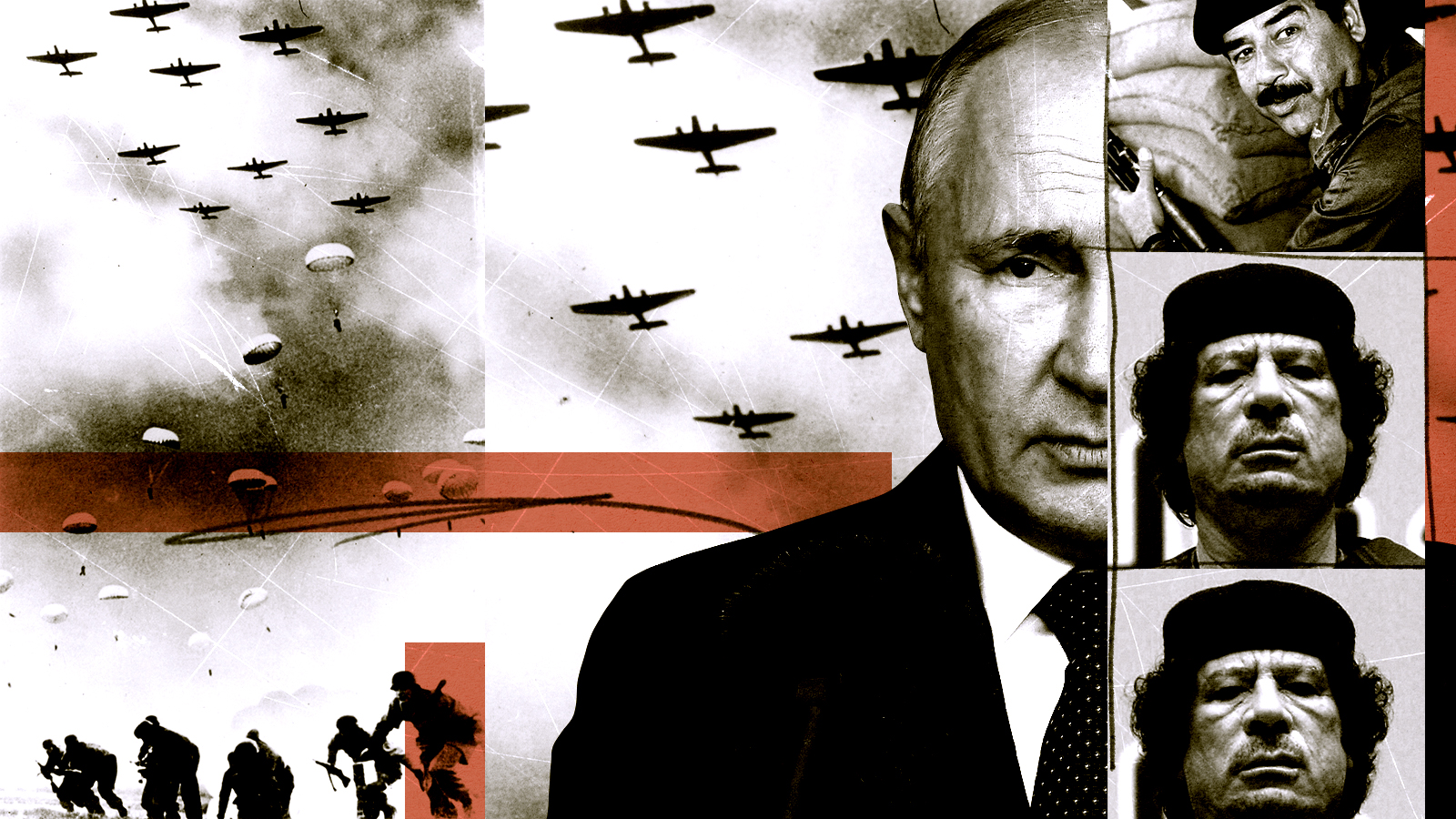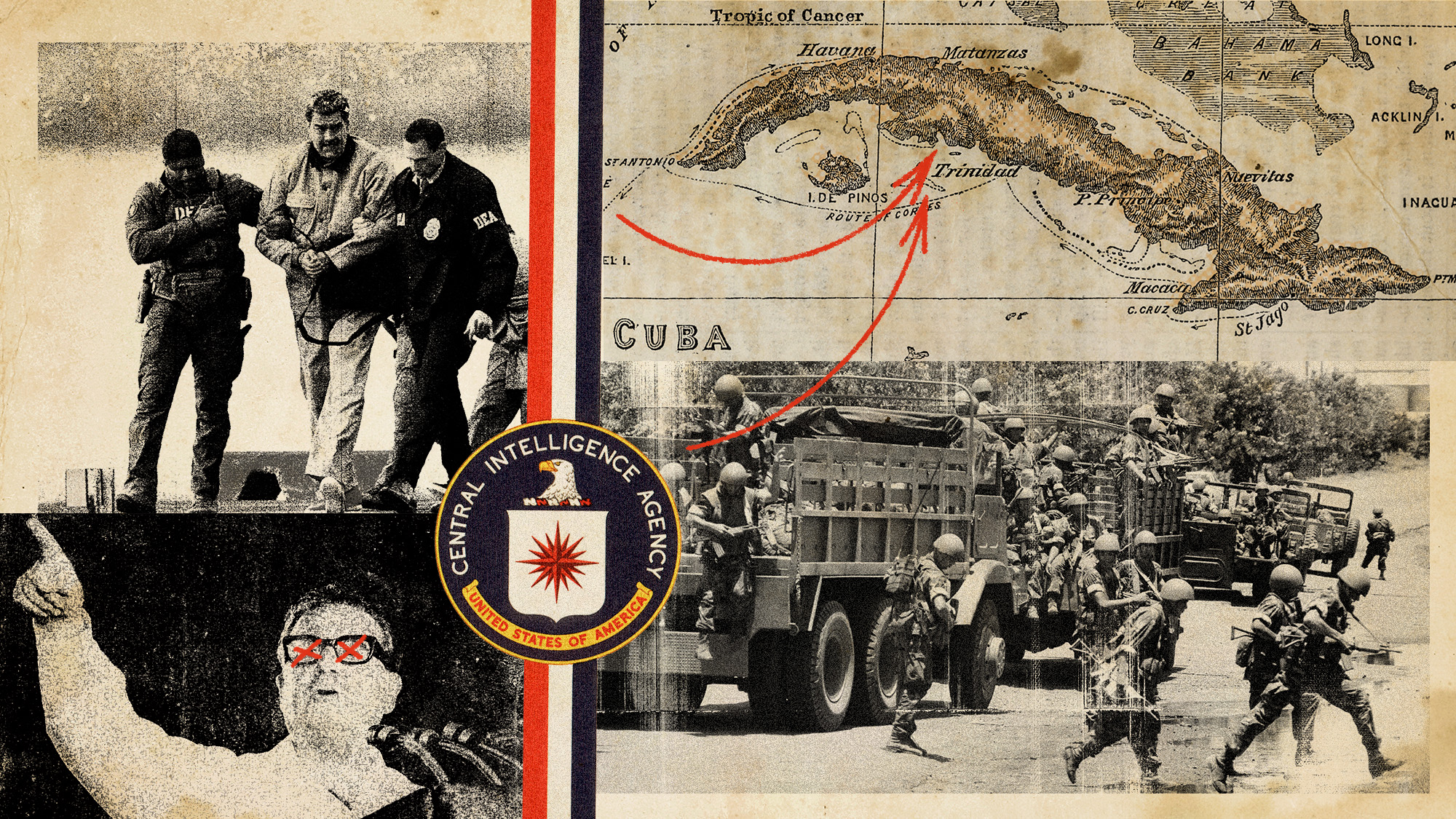Russia's not the USSR, and this isn't World War II. Does Biden realize?


A free daily email with the biggest news stories of the day – and the best features from TheWeek.com
You are now subscribed
Your newsletter sign-up was successful
"If the U.S. and NATO aren't willing to put troops on the line to defend Ukraine, and American allies can't agree on a sanctions package, hasn't the U.S. and the West lost nearly all of its leverage over [Russian President] Vladimir Putin?" asked a reporter of President Biden at his press conference Wednesday before lamenting the ineffectiveness of sanctions.
Translation: The United States has no power to influence events except through military intervention, and if we truly care about something, we'll put our troops on the line. Biden's response didn't much challenge that thinking; he mainly equivocated on how big of a Russian incursion it could take to merit a unified allied reaction.
The question and answer alike illustrate how much of our thinking remains mired in World War II and the Cold War. Every tinpot dictator is compared to Adolf Hitler or Joseph Stalin, every op-ed analogy involves Neville Chamberlain or unchecked Soviet expansionism. The fights against Nazism and communism were as close as one gets in the real world to black-and-white, good vs. evil conflicts, and we still tend to shove our foreign policy debates into their frameworks decades later.
The Week
Escape your echo chamber. Get the facts behind the news, plus analysis from multiple perspectives.

Sign up for The Week's Free Newsletters
From our morning news briefing to a weekly Good News Newsletter, get the best of The Week delivered directly to your inbox.
From our morning news briefing to a weekly Good News Newsletter, get the best of The Week delivered directly to your inbox.
But even in those battles, there were nuances and complexities — the fireboming of Dresden, the debate over dropping atomic bombs on Japan, the My Lai massacare, and a good bit of Cold War foreign policy in Africa and Central America all come to mind. And, of course, we had to ally with Stalin to defeat Hitler.
The simplified stories we more often tell do little to prepare us for conflicts in which there are no true good guys. This muddled thinking cost the United States much blood and treasure in the Middle East over the past two decades and may lead us to overstate the degree to which Ukraine is a liberal democracy that deserves NATO defense. Putin is certainly a bad guy, but any discussion of the costs and benefits associated with NATO membership for a flawed Ukranian regime should not be dismissed as Russian disinformation.
The United States faces many challenges that cannot be solved by forever wars or clarified by World War II or Cold War analogies. Rediscovering soft power and discarding simple morality tales may be the first steps in meeting them.
A free daily email with the biggest news stories of the day – and the best features from TheWeek.com
W. James Antle III is the politics editor of the Washington Examiner, the former editor of The American Conservative, and author of Devouring Freedom: Can Big Government Ever Be Stopped?.
-
 The ‘ravenous’ demand for Cornish minerals
The ‘ravenous’ demand for Cornish mineralsUnder the Radar Growing need for critical minerals to power tech has intensified ‘appetite’ for lithium, which could be a ‘huge boon’ for local economy
-
 Why are election experts taking Trump’s midterm threats seriously?
Why are election experts taking Trump’s midterm threats seriously?IN THE SPOTLIGHT As the president muses about polling place deployments and a centralized electoral system aimed at one-party control, lawmakers are taking this administration at its word
-
 ‘Restaurateurs have become millionaires’
‘Restaurateurs have become millionaires’Instant Opinion Opinion, comment and editorials of the day
-
 ‘The mark’s significance is psychological, if that’
‘The mark’s significance is psychological, if that’Instant Opinion Opinion, comment and editorials of the day
-
 Big-time money squabbles: the conflict over California’s proposed billionaire tax
Big-time money squabbles: the conflict over California’s proposed billionaire taxTalking Points Californians worth more than $1.1 billion would pay a one-time 5% tax
-
 Did Alex Pretti’s killing open a GOP rift on guns?
Did Alex Pretti’s killing open a GOP rift on guns?Talking Points Second Amendment groups push back on the White House narrative
-
 Washington grapples with ICE’s growing footprint — and future
Washington grapples with ICE’s growing footprint — and futureTALKING POINTS The deadly provocations of federal officers in Minnesota have put ICE back in the national spotlight
-
 Trump’s Greenland ambitions push NATO to the edge
Trump’s Greenland ambitions push NATO to the edgeTalking Points The military alliance is facing its worst-ever crisis
-
 Why is Trump threatening defense firms?
Why is Trump threatening defense firms?Talking Points CEO pay and stock buybacks will be restricted
-
 A running list of the international figures Donald Trump has pardoned
A running list of the international figures Donald Trump has pardonedin depth The president has grown bolder in flexing executive clemency powers beyond national borders
-
 A running list of US interventions in Latin America and the Caribbean after World War II
A running list of US interventions in Latin America and the Caribbean after World War IIin depth Nicolás Maduro isn’t the first regional leader to be toppled directly or indirectly by the US
